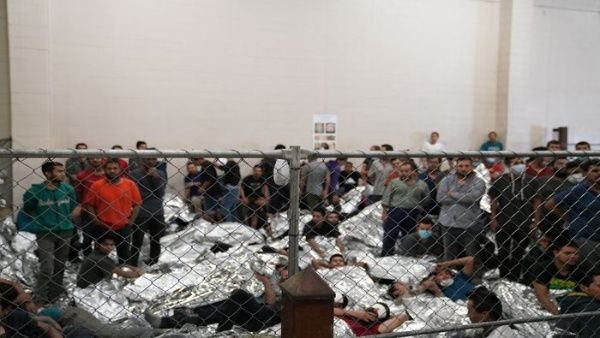Immigration detention center are not illegal, but they can be difficult for people to stay in. They provide a place where immigrants who have been apprehended and detained by authorities go before being deported or released. These facilities vary in size and level of security, with some even providing day care centers for children. As an immigration lawyer, I often see clients coming from these facilities who need help with their cases because they’re unaware of what is happening to them. This blog post will walk you through the process as well as answer any questions about why someone might end up there or how long they could potentially be staying at one.
What are immigration detention center in the U.S.?
Detention centers in the U.S. are places where people who are not even accused of any crime, but are wanted by the immigration services are locked up and deprived of their freedom. These centers are run by private companies such as SERCO GROUP LTD, CORRECTIONAL SERVICES CORPORATION or GEO GROUP INC. In 2008 Obama signed the Immigration Law 245(I), allowing Private Prison Companies (PPCs) to guarantee 90% of all detention centers in the US, being the two main ones (CALIFORNIA CORRECTIONAL SERVICES and THE GEO GROUP).
These centers are places where people are psychologically tortured to denounce their countries. It is common for these companies to hire ex-military personnel with military training in “counterinsurgency” in Iraq or Afghanistan, which implies a close relationship between the American army and the private companies. Prisoners in these types of centers do not have family visits, cannot receive phone calls and are only allowed to have contact with their lawyer once a month.
How many immigration detention centers are there in the U.S.?
Since 2009 there have been at least 325 detention centers, which are run by 41 private companies. These centers are not only for undocumented immigrants but also hold Islamist terrorists, members of the IRA and even neo-Nazis. As of today there are 59048 people held in these centers (according to official data).
How can we stop torture in Immigration Detention Centers?
To end torture in these centers, it is first necessary to end the detention of undocumented immigrants. There are many people who have died in these places, as well as those who have suffered psychological torture. It is important to denounce these situations and demand accountability from the authorities. This is the only way to put an end to the torture in the Immigration Detention Centers.
The conditions in these centers are inhumane. On February 9, 2017, a 10-year-old girl died of asphyxiation in a detention center in Arizona. The little girl was sick and did not receive adequate medical care. According to Human Rights Watch, 50% of the prisoners in these types of centers have mental health problems. Psychological torture is constant and various methods are used to humiliate and demoralize people, such as making them sleep on the floor or leaving them without underwear. Most people have no contact with their family or lawyer, and those who do have contact only once a month, making it impossible to lead a normal life in prison (phone calls are encrypted).
Is detention illegal?
According to Article 5 of the Universal Declaration of Human Rights, everyone has the right to liberty and security of person. Detention without just cause is illegal and constitutes a serious violation of human rights. The UN has issued several reports criticizing the conditions in these detention centers, but the U.S. authorities continue to do nothing to improve them.
The private companies that run these centers are primarily responsible for the human rights violations that occur in them. The conditions of detention are inhumane and violate people’s fundamental rights, as well as using psychological torture to demoralize people (humiliation and continuous harassment). The UN has repeatedly criticized the use of this type of “legal torture” by the US military. Defenders in practice have denounced numerous deaths as a direct consequence of the treatment received at these sites.
Can I visit a detainee in the detention center?
Visitors are only allowed to see their family members once a month and indoors, so the visit is not like a normal prison visit. In facilities in Utah, California and Texas, people are prohibited from talking to other detainees during visits. Conditions are so strict that they have forced non-profit organizations such as the American Civil Liberties Union (aclu) and Human Rights Watch to hold “visiting skills” classes in their offices.
What happens when an immigrant is detained?
If a person is detained and found in a place where there are no law enforcement authorities, he/she will be handed over to the police. If convicted, he or she could be held for between 1 month and 2 years in a detention center. If the prosecutor decides that you have committed a felony (such as murder), you will be taken to federal court, where you will be found guilty or not. If you are found not guilty and there was no reason for your arrest, you can sue the authorities for unlawfully depriving you of your liberty.
Can I post bail?
Yes, the arrested person can post bail and be released. The problem is that he/she has to find someone to take care of him/her (usually a family member), otherwise he/she will be detained again. Most people do not have the money to pay bail and are deported directly to their country of origin. Bonds can cost between $1,000 and $5,000, depending on the seriousness of the crime.

Where can I get help if my rights are violated in these centers?
Human Rights Watch published a report describing the conditions in these centers and denouncing the violation of human rights. You can also file a lawsuit for unlawful detention or poor sanitary conditions. You can find a specialized attorney here or contact our immigration attorneys at Superior Justice.
We can help you with any immigration problem. The best way to find out if you can receive assistance is to call our new phone number or via WhatsApp. If you cannot use it, send us an e-mail at info@superiorjustice.com.




